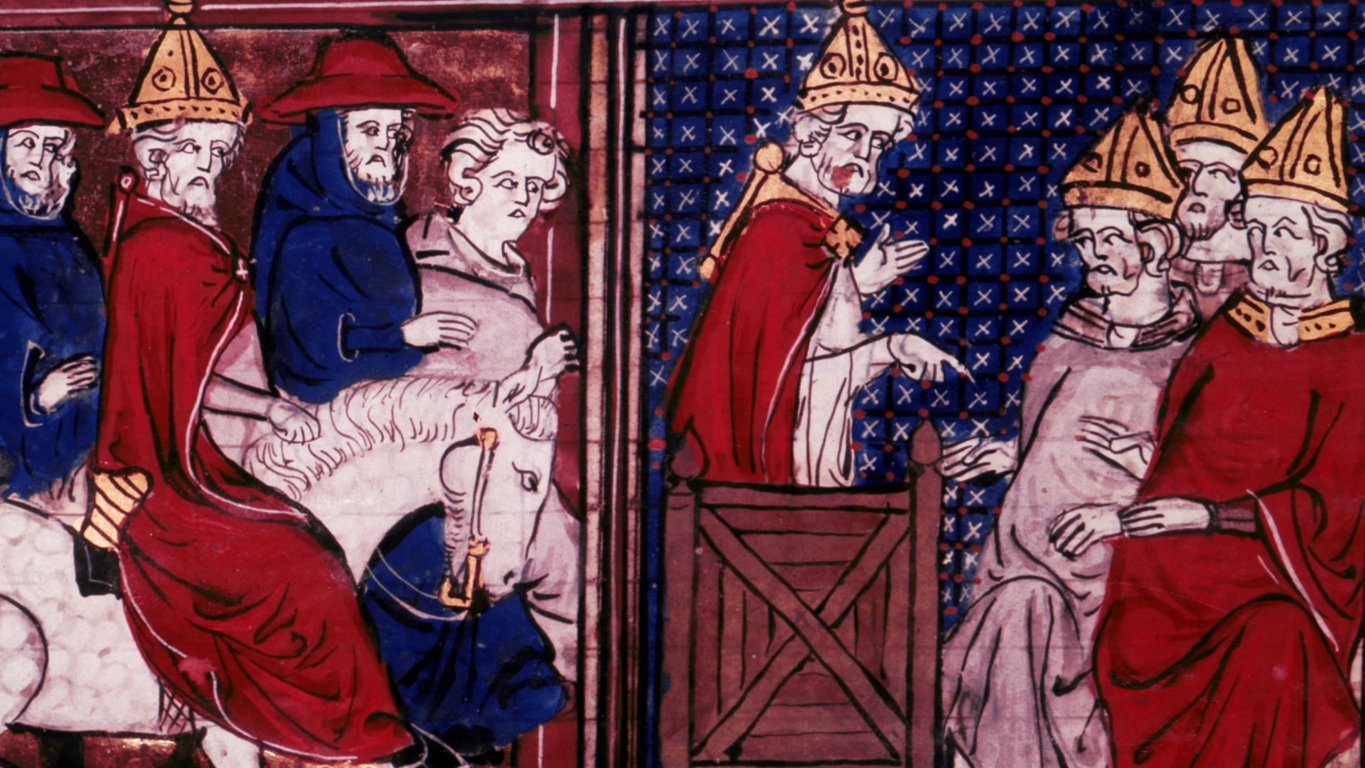
Pope Urban II, born Odo of Châtillon or Otho de Lagery (c. 1042 – 29 July 1099), served as the head of the Roman Catholic Church and ruler of the Papal States from 12 March 1088 until his death in 1099. Esteemed for his pivotal role in shaping medieval Europe’s religious and political landscape, Pope Urban II’s most notable contribution was initiating the First Crusade, a significant event that left an indelible mark on Christian and Islamic histories. His papacy, spanning the late 11th century, coincided with a period of intense religious fervor and complex geopolitical dynamics.
Early Life and Rise to Papacy
Pope Urban II, born Odo of Châtillon, embarked on his ecclesiastical journey in the mid-11th century, a time of notable religious reform and political turmoil in Europe. His early years, marked by a rigorous education in theology and canon law, prepared him for a distinguished career in the church. Odo’s profound understanding of church doctrine and his commitment to the Cluniac reforms, which sought to revive the spiritual integrity of the church, propelled his ascent within ecclesiastical ranks.
In 1088, Odo ascended to the papacy as Urban II. His election occurred amid a period of strife within the church, primarily due to the Investiture Controversy, a conflict concerning the appointment of church officials. As Pope, Urban II’s immediate focus was on consolidating papal authority and reasserting the church’s spiritual independence from secular rulers. His diplomatic acumen and fervent advocacy for church reforms underscored his early papacy, laying the groundwork for his broader vision for Christendom.
The Call for the First Crusade
The inception of the First Crusade, a watershed moment in Pope Urban II’s tenure, was a response to complex geopolitical and religious circumstances. In 1095, responding to the Byzantine Emperor Alexios I Komnenos’ appeal for aid against the Seljuk Turks, Pope Urban II saw an opportunity to unite the fragmented Christian world under a common cause. The Seljuk expansion into Byzantine territory and their control over Jerusalem, a city sacred to Christians, Jews, and Muslims, provided a compelling pretext for the Crusade.
At the Council of Clermont in November 1095, Pope Urban II delivered a rousing speech, calling on the knights and nobles of Christendom to take up arms to reclaim the Holy Land. His eloquence and the promise of spiritual rewards, such as remission of sins for those who participated, resonated deeply with his audience. The Crusade, framed as both a pious pilgrimage and a righteous war, attracted a diverse array of participants, from knights to peasants, motivated by religious zeal, the lure of adventure, and the promise of economic gain. Pope Urban II’s call for the Crusade marked a significant shift in the nature of religious warfare and set the stage for a series of events that would profoundly influence the course of European and Middle Eastern history.
Impact of the First Crusade
The First Crusade, instigated by Pope Urban II, left an indelible mark on both European and Middle Eastern history. The Crusaders’ eventual capture of Jerusalem in 1099, although marred by significant violence and loss of life, was heralded in Europe as a divine victory, bolstering Pope Urban II’s reputation and authority. This success temporarily expanded Christian dominions in the Holy Land and established several Crusader states. However, the Crusade also intensified Christian-Muslim animosity, setting a precedent for subsequent military endeavors in the name of faith. Pope Urban II’s legacy is thus intertwined with the complex outcomes of the Crusade, including both its religious triumphs and the tragedies it engendered.
Legacy and Canonization
Pope Urban II’s legacy extends beyond the First Crusade. His efforts in reforming the Church, centralizing papal authority, and promoting clerical discipline had lasting impacts on the Catholic Church’s structure. Despite the controversial nature of the Crusades, Pope Urban II is often credited with unifying a fragmented Christendom and asserting the Church’s influence over secular matters. After his death in 1099, his contributions to the Church were widely recognized, but he was not formally canonized as a saint.
Pope Urban II’s role as the initiator of the First Crusade cemented his place in history as a pivotal figure in the intersection of religion and politics. His actions and their far-reaching consequences continue to be a subject of scholarly debate, highlighting the complexities of religious leadership and the enduring impact of the Crusades on Christian-Muslim relations.
References
- Asbridge, Thomas. The First Crusade: A New History. Oxford University Press, 2004.
- Tyerman, Christopher. God’s War: A New History of the Crusades. Belknap Press, 2006.
- Fordham University Sourcebook (accessed 12 December 2023).
- Britannica on Pope Urban II (accessed 12 December 2023).
